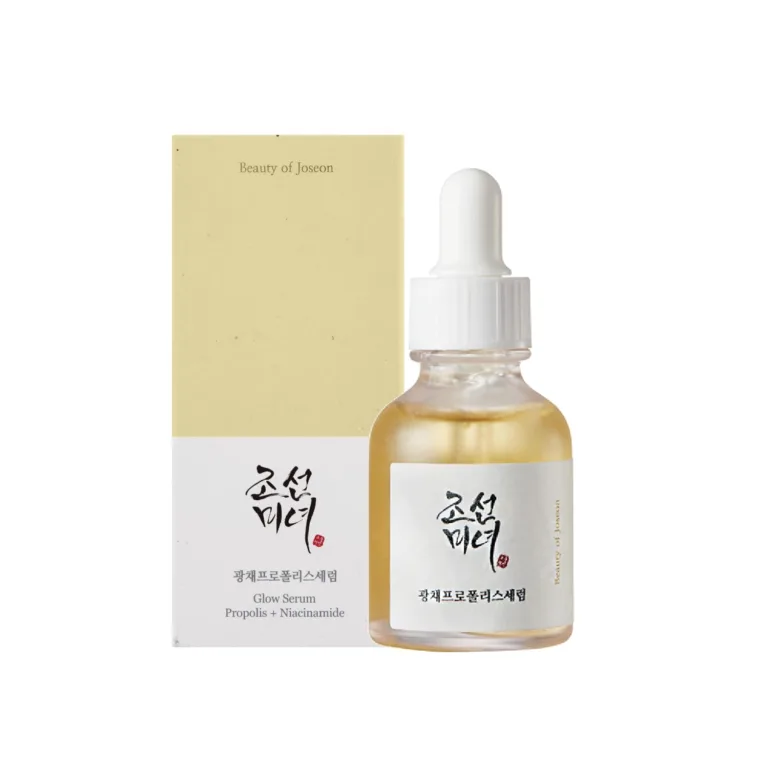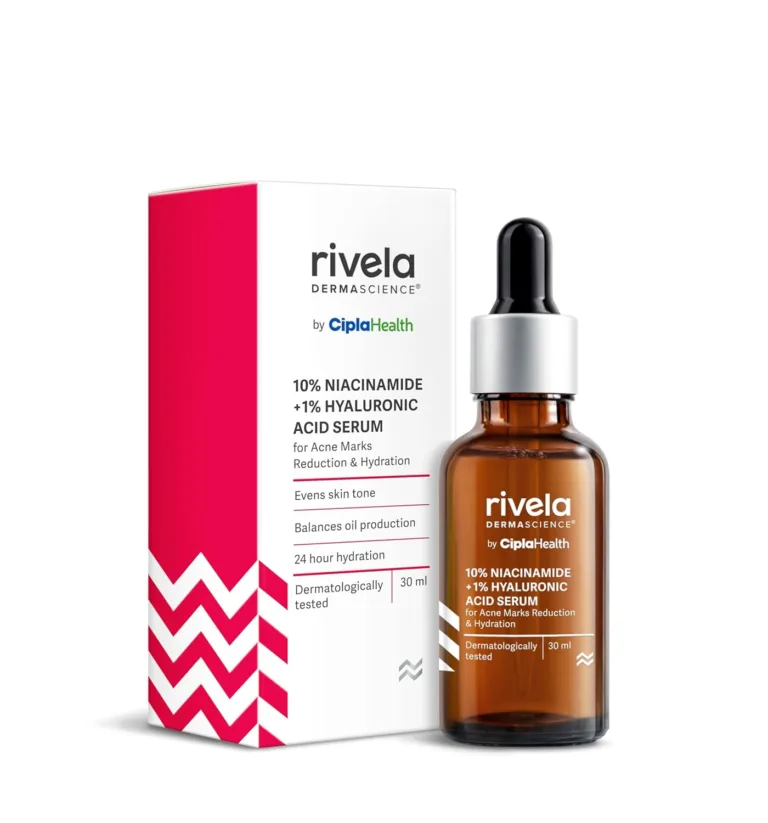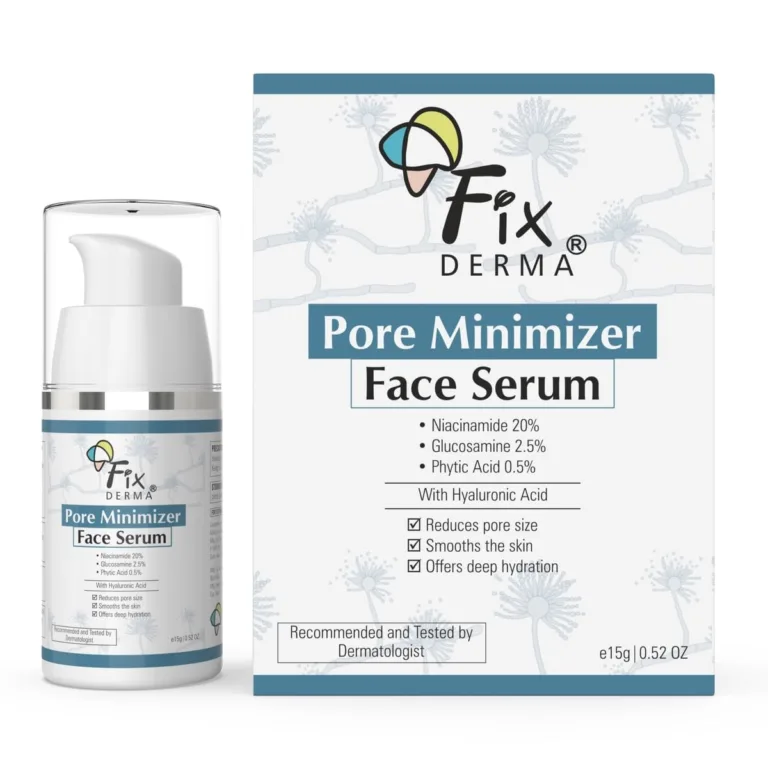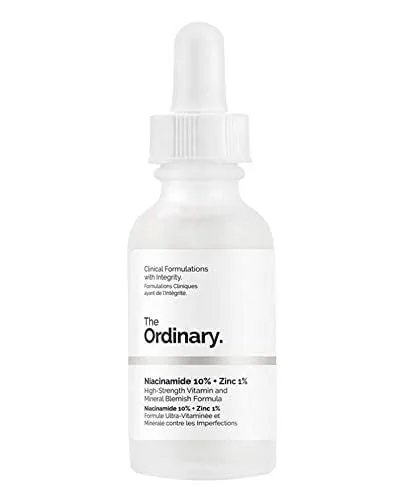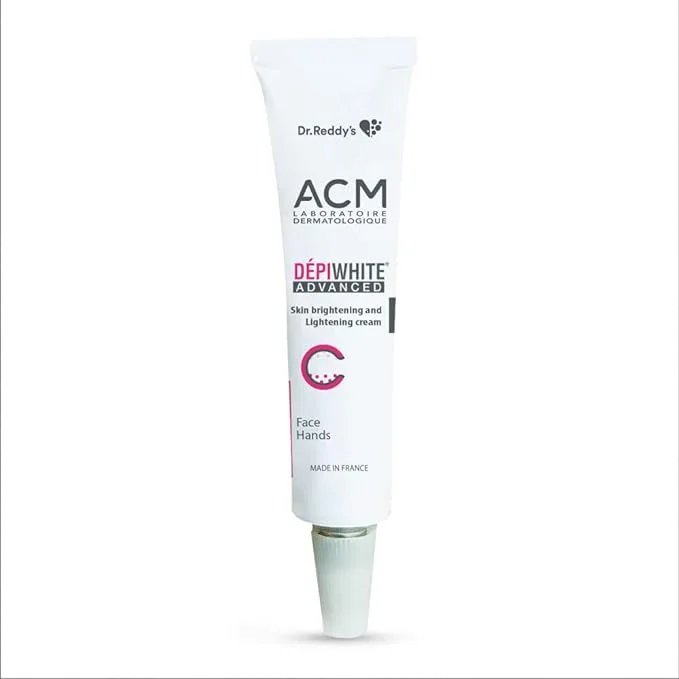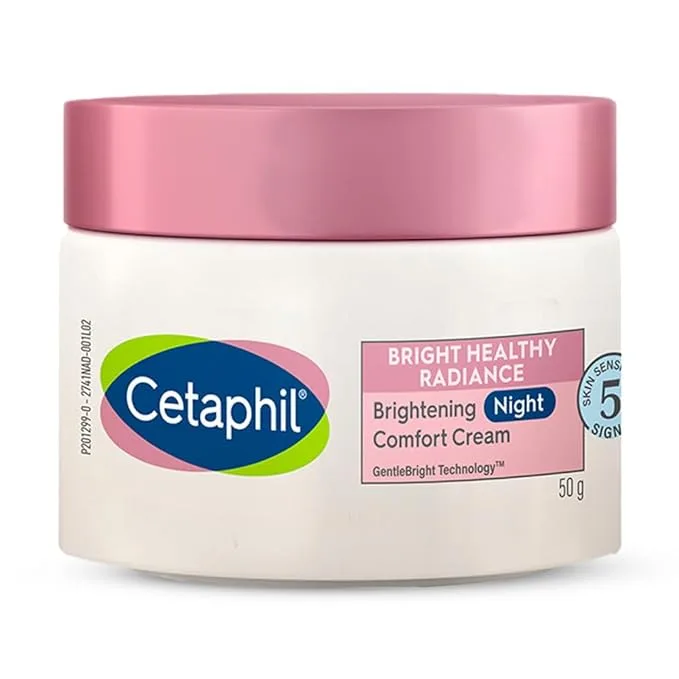Table of Contents
ToggleUnderstanding the Basics of Niacinamide
Niacinamide, also known as nicotinamide, is a form of vitamin B3 that has gained significant attention in the skincare industry due to its multiple benefits. It is a water-soluble vitamin that is not synthesized in the body and needs to be supplied externally.
The Science Behind Niacinamide
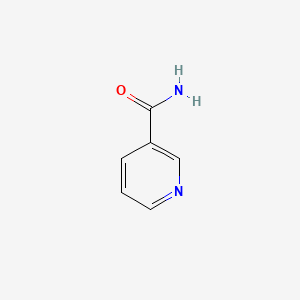

Niacinamide works by boosting the production of ceramides, which are lipids that help maintain the skin’s protective barrier. This barrier is crucial in protecting the skin from environmental damage, preventing water loss, and keeping out microbes and toxins. By strengthening this barrier, Niacinamide helps to keep the skin hydrated, healthy, and resilient.
Moreover, Niacinamide has anti-inflammatory properties, making it effective in reducing redness and blotchiness. It also regulates oil production, which can help manage conditions like acne. Furthermore, it protects against oxidative stress by neutralizing free radicals, thereby preventing premature aging.
Sources of Niacinamide in Skincare Products
Niacinamide is found in various skincare products, including serums, creams, and lotions. It is also present in certain cleansers and toners. Due to its stability and compatibility with other skincare ingredients, it can be easily incorporated into various formulations. It is also suitable for all skin types, making it a versatile ingredient in skincare.
Niacinamide vs. Other Skincare Ingredients
Compared to other skincare ingredients, Niacinamide stands out due to its versatility and wide range of benefits.
Retinoids:
Unlike retinoids,which can cause irritation and are not recommended for use during the day, Niacinamide is gentle and can be used both day and night. It is also compatible with most other skincare ingredients, including AHA acids and retinol.
Hyaluronic Acid:
While ingredients like hyaluronic acid focus on hydrating the skin, Niacinamide goes a step further by also improving skin barrier function and reducing inflammation.
Salicylic Acid:
It also offers benefits that are typically associated with other ingredients, such as the sebum-regulating properties of salicylic acid and the anti-aging effects of retinol.
The Science Behind Niacinamide
What is Niacinamide?
Niacinamide, also known as nicotinamide, is a form of vitamin B3. It is a water-soluble vitamin that plays a crucial role in cellular metabolism. Unlike niacin, another form of vitamin B3, niacinamide does not cause flushing or skin redness. This makes it a preferred ingredient in skincare products.
Niacinamide is not synthesized in the body and needs to be supplied externally. It is found in various foods like meat, fish, eggs, green vegetables, and grains. However, for skincare purposes, it is often applied topically through creams, serums, and lotions.
How Does Niacinamide Work?
Niacinamide works in skincare through several mechanisms. Here are some of the key ways:
Skin Barrier Function:
Niacinamide boosts the production of ceramides, which are lipids that help maintain the skin’s protective barrier. This barrier is crucial in protecting the skin from environmental damage, preventing water loss, and keeping out microbes and toxins. By strengthening this barrier, niacinamide helps to keep the skin hydrated, healthy, and resilient.
Anti-Inflammatory Properties:
Niacinamide has anti-inflammatory properties, making it effective in reducing redness and blotchiness. This is particularly beneficial for people with skin conditions like rosacea and acne.
Sebum Regulation:
Niacinamide regulates oil production in the skin. This can help manage conditions like acne and can lead to improved skin texture.
Anti-Aging Effects:
Niacinamide protects against oxidative stress by neutralizing free radicals, thereby preventing premature aging. It also improves skin elasticity and reduces the appearance of fine lines and wrinkles.
Niacinamide for Different Skin Types:
Oily Skin: Balancing Sebum Production and Fighting Acne with Niacinamide
Oily skin is a common skin type characterized by excess sebum production. While sebum is necessary for skin health as it provides hydration and protection, too much of it can lead to oily skin, clogged pores, and acne breakouts. One of the key ingredients that can help balance sebum production and fight acne is Niacinamide.
Balancing Sebum Production
Sebum is an oily substance produced by the sebaceous glands in our skin. It plays a crucial role in maintaining skin health by providing hydration and forming a protective barrier against environmental damage. However, when these glands produce too much sebum, it can lead to oily skin and acne.
Niacinamide, has been shown to help balance sebum production. It does this by normalizing the lining of the pores, which helps to keep them clear and reduce their appearance. This can result in less oil on the skin’s surface and a more balanced and less shiny complexion.
Fighting Acne with Niacinamide
Acne is a common skin condition that occurs when hair follicles become plugged with oil and dead skin cells. It often causes whiteheads, blackheads, or pimples. Niacinamide can be a powerful ally in the fight against acne.
Firstly, its sebum-balancing properties can help reduce the oiliness of the skin, which is a common factor in acne development. By helping to regulate sebum production, Niacinamide can help prevent the clogging of pores, which is the first step in the formation of acne.
Secondly, Niacinamide has anti-inflammatory properties. Acne is fundamentally an inflammatory condition, and the anti-inflammatory action of Niacinamide can help reduce the redness and swelling associated with acne.
Lastly, Niacinamide can improve skin barrier function. A strong skin barrier is essential in preventing skin issues, including acne. By strengthening the skin barrier, Niacinamide can help keep out irritants and bacteria that can contribute to acne.
Dry Skin: Niacinamide for Skin Hydration and Improving Skin Barrier Function
Dry skin is a common condition characterized by a lack of the appropriate amount of water in the most superficial layer of the skin, the epidermis. While skincare routines often focus on treating oily and acne-prone skin, it’s equally important to address the needs of dry skin. One ingredient that has shown promise in this area is Niacinamide.
Niacinamide for Skin Hydration
Niacinamide has been recognized for its role in skin hydration. It works by increasing the production of ceramides, which are lipids that help form the skin’s protective barrier and help skin retain moisture. By boosting ceramide levels, Niacinamide can help to improve skin hydration and alleviate dryness.
Moreover, Niacinamide has been shown to increase the production of other skin proteins such as keratin, filaggrin, and involucrin, which play a crucial role in maintaining skin hydration and overall health. By doing so, Niacinamide helps to keep the skin moisturized and reduces the symptoms of dryness, such as flaking, itching, or tightness.
Improving Skin Barrier Function
The skin barrier function refers to the outermost layer of the skin’s ability to prevent water loss and protect the skin from environmental factors like UV radiation, pollution, and microbes. A strong skin barrier is essential for maintaining skin hydration and overall skin health.
Niacinamide helps to improve the skin barrier function in several ways. Firstly, by increasing ceramide production, it strengthens the skin’s lipid barrier, which is crucial for preventing water loss. Secondly, its anti-inflammatory properties can help to reduce inflammation, which can compromise the skin barrier. Lastly, Niacinamide can stimulate the production of collagen and elastin, proteins that provide structure and elasticity to the skin, further enhancing the skin barrier function.
Sensitive Skin: Soothing Inflammation and Reducing Redness with Niacinamide
Sensitive skin is a common condition characterized by a heightened reactivity to environmental factors and a propensity for irritation. Managing sensitive skin can be challenging, but ingredients like Niacinamide can offer significant benefits.
Soothing Inflammation with Niacinamide
Inflammation is a common symptom of sensitive skin. It can manifest as redness, itching, burning, or a feeling of tightness. Niacinamide, has been shown to have potent anti-inflammatory properties that can help soothe inflammation in sensitive skin.
Niacinamide works by reducing the production of inflammatory substances in the skin. It also helps to increase the production of ceramides, which are lipids that form part of the skin’s barrier. A strong skin barrier can help to protect the skin from irritants and allergens that can trigger inflammation.
Moreover, Niacinamide can help to reduce the sensitivity of the skin to external factors. By strengthening the skin’s barrier and reducing inflammation, it can help to increase the skin’s tolerance to potentially irritating substances.
Reducing Redness and Irritation
Redness and irritation are common issues for those with sensitive skin. These symptoms can be triggered by a variety of factors, including environmental irritants, allergens, and harsh skincare products.
Niacinamide can help to reduce redness and irritation in several ways. Firstly, its anti-inflammatory properties can help to soothe the skin and reduce redness. Secondly, by strengthening the skin’s barrier, it can help to protect the skin from irritants that can cause redness and irritation.
Furthermore, Niacinamide has been shown to reduce the production of sebum, an oily substance that can clog pores and contribute to redness and irritation. By regulating sebum production, Niacinamide can help to prevent these issues.
Aging Skin: Niacinamide for Wrinkle Reduction and Improving Skin Elasticity
Aging is a natural process that affects all our body systems, including the skin. As we age, our skin undergoes various changes, such as the development of wrinkles and a decrease in elasticity. However, certain ingredients like Niacinamide can help mitigate these effects.
Niacinamide and Wrinkle Reduction
Wrinkles are one of the most visible signs of skin aging. They occur due to a combination of factors, including the breakdown of collagen and elastin, two proteins that provide structure and elasticity to the skin. Niacinamide, has been shown to help reduce the appearance of wrinkles.
Niacinamide works by boosting the production of collagen and elastin, thereby helping to improve the skin’s structure and reduce the appearance of wrinkles. It also helps to improve skin hydration by increasing the production of ceramides, which are lipids that form part of the skin’s barrier. Hydrated skin is plumper and shows fewer wrinkles than dry skin.
Moreover, Niacinamide has antioxidant properties, which means it can neutralize free radicals that cause oxidative stress and contribute to skin aging. By reducing oxidative stress, Niacinamide can help prevent the breakdown of collagen and elastin, thereby reducing the formation of wrinkles.
Improving Skin Elasticity with Niacinamide
Skin elasticity refers to the skin’s ability to return to its original shape after being stretched or compressed. As we age, our skin loses its elasticity, leading to sagging and the formation of wrinkles.
Niacinamide can help improve skin elasticity in several ways. Firstly, by boosting the production of collagen and elastin, it can help to enhance the skin’s structure and elasticity. Secondly, its hydrating properties can help to keep the skin plump and elastic.
Furthermore, Niacinamide can improve skin barrier function, which is crucial for maintaining skin hydration and overall skin health. A strong skin barrier can help to keep the skin hydrated and elastic, thereby helping to maintain its elasticity.
Niacinamide in Action: Addressing Common Skin Concerns
The Role of Niacinamide in Tackling Hyperpigmentation and Dark Spots
Hyperpigmentation and dark spots are common skin concerns that can occur due to various factors, including sun exposure, aging, hormonal changes, and inflammation. They occur when melanin, the pigment that gives our skin its color, is overproduced in certain areas, leading to a darker color than the surrounding skin. One ingredient that has shown promise in addressing these concerns is Niacinamide.
Understanding Hyperpigmentation and Dark Spots
Hyperpigmentation and dark spots can affect anyone, regardless of skin type or color. They can appear as small, darkened patches or cover large areas of the skin. While they are usually harmless, they can cause distress due to their impact on one’s appearance.
Niacinamide: A Solution for Hyperpigmentation and Dark Spots
Niacinamide, has been recognized for its role in addressing hyperpigmentation and dark spots. It works by inhibiting the transfer of melanosome, which is a cellular structure that contains melanin, from melanocytes (the cells that produce melanin) to keratinocytes (the predominant cells in the outermost layer of the skin). By doing so, Niacinamide helps to reduce the overproduction of melanin, thereby lightening hyperpigmentation and dark spots.
Moreover, Niacinamide has anti-inflammatory properties, which can be beneficial in addressing post-inflammatory hyperpigmentation, a type of hyperpigmentation that occurs following skin inflammation or injury.
The Benefits of Niacinamide for Skin Health
In addition to its role in tackling hyperpigmentation and dark spots, Niacinamide offers several other benefits for skin health. It helps to strengthen the skin’s barrier function, improve skin hydration, regulate sebum production, and reduce inflammation and redness. These properties make Niacinamide a versatile and valuable ingredient in skincare.
Niacinamide’s Role in Minimizing Fine Lines and Wrinkles
Fine lines and wrinkles are a natural part of aging, but they can also be influenced by factors such as sun exposure, diet, and skincare routines. One ingredient that has shown promise in minimizing these signs of aging is Niacinamide.
Understanding Fine Lines and Wrinkles
Fine lines and wrinkles are caused by the breakdown of collagen and elastin in the skin, two proteins that provide structure and elasticity. As we age, our bodies produce less of these proteins, leading to the formation of fine lines and wrinkles. Other factors, such as sun exposure and smoking, can accelerate this process.
The Role of Niacinamide
Niacinamide, has been recognized for its role in skin health. It has been shown to boost the production of collagen and elastin, thereby helping to improve the skin’s structure and reduce the appearance of fine lines and wrinkles.
Niacinamide works by increasing the production of ceramides, lipids that help form the skin’s protective barrier. A strong skin barrier is essential for maintaining skin hydration, which can help to plump up the skin and reduce the appearance of fine lines and wrinkles.
Moreover, Niacinamide has antioxidant properties, which means it can neutralize free radicals that cause oxidative stress and contribute to skin aging. By reducing oxidative stress, Niacinamide can help prevent the breakdown of collagen and elastin, thereby reducing the formation of fine lines and wrinkles.
Combating Redness and Inflammation with Niacinamide
Skin redness and inflammation are common issues that can occur due to various factors, including skin conditions like rosacea and acne, environmental irritants, and harsh skincare products. One ingredient that has shown promise in addressing these concerns is Niacinamide.
Understanding Skin Redness and Inflammation
Skin redness and inflammation are often signs of irritation or an underlying skin condition. They can cause discomfort and can impact one’s appearance and self-esteem. Understanding the causes and finding effective treatments are crucial steps in managing these issues.
The Role of Niacinamide
Niacinamide, has been recognized for its role in skin health. It has been shown to have potent anti-inflammatory properties that can help soothe inflammation and reduce redness.
Niacinamide works by reducing the production of inflammatory substances in the skin. It also helps to increase the production of ceramides, which are lipids that form part of the skin’s barrier. A strong skin barrier can help to protect the skin from irritants and allergens that can trigger inflammation and redness.
Moreover, Niacinamide can help to reduce the sensitivity of the skin to external factors. By strengthening the skin’s barrier and reducing inflammation, it can help to increase the skin’s tolerance to potentially irritating substances.
Incorporating Niacinamide into Your Skincare Routine
Niacinamide, a form of vitamin B3, has gained significant attention in the skincare industry due to its multiple benefits. It can help improve skin hydration, reduce inflammation, regulate sebum production, and address various skin concerns like hyperpigmentation, fine lines, and wrinkles. However, to reap these benefits, it’s important to incorporate Niacinamide into your skincare routine correctly.
Choosing the Right Niacinamide Product
The first step in incorporating Niacinamide into your skincare routine is choosing the right product. Niacinamide is found in various skincare products, including serums, creams, and lotions. The choice of product depends on your skin type, concerns, and the other products in your skincare routine.
For instance, if you have oily or acne-prone skin, a Niacinamide serum might be a good choice as it’s lightweight and can help regulate sebum production. On the other hand, if you have dry or sensitive skin, a Niacinamide cream or lotion might be more suitable as it can provide additional hydration.
When choosing a Niacinamide product, it’s also important to consider the concentration of Niacinamide. A concentration of 2-5% is generally sufficient for most skin types and concerns. However, higher concentrations can be used for specific concerns like hyperpigmentation.
When and How to Apply Niacinamide
Once you’ve chosen the right Niacinamide product, the next step is to incorporate it into your skincare routine. Niacinamide can be used both in the morning and at night. However, it’s always best to follow the instructions on the product packaging.
As a general rule, skincare products should be applied in the order of their consistency, from thinnest to thickest. Therefore, if you’re using a Niacinamide serum, it should be applied after cleansing and toning but before moisturizing. If you’re using a Niacinamide cream or lotion, it can be applied as the last step in your skincare routine.
When applying Niacinamide, make sure to apply it evenly across your face and neck. Avoid the eye area as the skin there is more delicate. Also, remember to apply sunscreen in the morning as Niacinamide can increase your skin’s sensitivity to the sun.
To maximize the benefits of niacinamide, it’s crucial to apply it correctly. Here’s a simple guide to help you incorporate niacinamide into your skincare routine:
Cleansing: Start with a gentle cleanser to remove any impurities from your skin.
Toning: If you use a toner, apply it to clean, dry skin. This step helps prepare your skin for the subsequent niacinamide application.
Niacinamide Application: Whether you’re using a serum or moisturizer, apply a pea-sized amount of niacinamide to your face and neck. Gently massage it into your skin using upward motions.
Layering: Niacinamide plays well with most other skincare ingredients. However, for optimal results, layer it before heavier products like oils and creams.
Sunscreen: Finish your morning routine with a broad-spectrum sunscreen with at least SPF 30. Niacinamide enhances the skin’s barrier function, and sunscreen helps protect it from harmful UV rays.
For evening routines, follow the same steps, excluding the sunscreen.
Considering Potential Side Effects
While Niacinamide is generally well-received by most people, it’s important to note that, like any skincare ingredient, it may cause side effects in some individuals. Potential side effects when taken orally can include symptoms like upset stomach, gas, dizziness, and rash. Topical application might result in mild burning, itching, or redness. These side effects are typically mild and temporary. However, if you experience persistent or severe side effects, it’s advised to stop using the product and seek advice from a healthcare professional.
Debunking Common Misunderstandings About Niacinamide
There exist a few common misunderstandings about Niacinamide. A prevalent misunderstanding is that Niacinamide and Niacin are identical. While they are both forms of vitamin B3, they exhibit different properties and effects on the skin. Another misunderstanding is that Niacinamide is only suitable for specific skin types. In reality, Niacinamide is well-tolerated by all skin types and can address a wide range of skin concerns.
Understanding Niacinamide’s Compatibility with Other Skincare Ingredients
Niacinamide is compatible with a broad spectrum of other skincare ingredients. It can be safely combined with other active ingredients such as retinoids, Vitamin C, beta hydroxy acids, and alpha hydroxy acids. This compatibility makes Niacinamide a versatile ingredient that can be incorporated into various skincare routines. However, as with any skincare product, it’s crucial to monitor your skin’s reaction and adjust your routine as necessary.
Conclusion
Incorporating Niacinamide into your skincare routine can be a game-changer for your skin health. Its wide range of benefits, including improving skin hydration, reducing inflammation, regulating sebum production, and addressing various skin concerns like hyperpigmentation, fine lines, and wrinkles, make it a versatile and valuable ingredient in skincare.
Embracing Niacinamide for Skin Health
Embracing Niacinamide means recognizing its potential and making it a part of your daily skincare routine. It’s about understanding that this powerhouse ingredient can offer significant benefits for your skin health, regardless of your skin type or concerns. Whether you’re dealing with acne, hyperpigmentation, dryness, or signs of aging, Niacinamide has something to offer.
Looking Ahead: The Future of Niacinamide in Skincare
Looking ahead, the future of Niacinamide in skincare looks promising. As more research is conducted, we continue to discover new benefits and applications of this ingredient. Furthermore, as consumers become more educated about the ingredients in their skincare products, the demand for effective, science-backed ingredients like Niacinamide is likely to grow.
In conclusion, Niacinamide is more than just a trend in skincare. It’s a powerful ingredient with proven benefits and a promising future. By embracing Niacinamide and incorporating it into your skincare routine, you can improve your skin health and work towards achieving your skin goals.
- RELATED ARTICLES
- YOUTHFUL SKIN UNLEASHED: 7 POSITIVE HABITS BACKED BY EXPERT INSIGHTS


